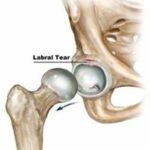
Pain can make daily life difficult; walking, working, or even sleeping becomes hard. We understand what you’re going through. That’s why our physiotherapy services are here to help you feel better and move freely again. With the right care, exercises, and support, our expert team works to reduce your pain and improve your strength.
Whether you’re healing from an injury, surgery, or long-term pain, we are here for you. We listen to your needs and create a treatment plan that fits you. Let’s take the first step towards a pain-free, active life together.
Book Your Appointment Now
Who is a physiotherapist?
Physiotherapists (according to APTA, the American Association of Physical Therapists) are highly educated, licensed healthcare professionals who can help patients reduce pain and improve or restore mobility, in many cases without expensive surgery and often reducing the need for long-term use of prescription medications and their side effects.
Physiotherapists (PTs) can teach patients how to prevent or manage their condition so that they will achieve long-term health benefits. PTs examine each individual and develop a plan, using treatment techniques to promote the ability to move, reduce pain, restore function, and prevent disability. In addition, PTs work with individuals to prevent the loss of mobility before it occurs by developing fitness- and wellness-oriented programs for healthier and more active lifestyles.
Physiotherapists provide care for people in a variety of settings, including hospitals, private practices, outpatient clinics, home health agencies, schools, sports and fitness facilities, work settings, and nursing homes.
Physiotherapy Includes Two Important Aspects:
1- Examination
Physiotherapy examination of the patient with impairments, functional limitations, and disabilities, or other health-related conditions to diagnose, prognosis, and determine the intervention. The examination includes different but overlapping domains. These are:
- Musculoskeletal examination (e.g. muscle strength and length testing, joint mobility, posture, and gait)
- Neuromuscular examination (e.g., reflex integrity, cranial nerve integrity, neuromotor development, and sensory integration)
- Cardiovascular/pulmonary examination (e.g., aerobic capacity/endurance, ventilation and respiration venous and lymphatic circulation)
- Integumentary examination (integumentary integrity, wounds, etc.)
2- Treatment
Alleviating impairments and functional limitations by designing, implementing, and modifying therapeutic interventions. Over and above this, a physiotherapist is also involved in:
- Preventing injury, impairment, and disability.
- identifying the risk factors in the occupation that may lead to injury in the future.
- promotion and maintenance of fitness, health, and quality of life.
- Engaging in consultation, education, and research.
Thus, if you consult a physiotherapist, you can expect improvement in activities of daily living, occupational health and related stresses, and better overall functional performance in the presence of impairment.
How do Physiotherapists Achieve this?
Physiotherapists basically have three arrays, which, if combined properly, can give a tremendous improvement in the functioning of a human body and thus normal, or near-normal, life. These arrays are:
This includes the modalities that are applied to get the desired results in terms of decreasing pain, increasing the range of motion at the different joints, and improving muscle performance. The modalities include:
- Hot Packs
- Cryotherapy
- Short Wave Diathermy (SWD)
- Interferential Therapy (IFT)
- Transcutaneous Electrical Nerve Stimulation (TENS)
- Ultrasonic Therapy (TENS)
- Electrical Stimulation
2- THERAPEUTIC EXERCISES
It is the systematic performance or execution of planned physical movements, postures, or activities intended to remediate or prevent impairments. These include:
- Aerobic and endurance conditioning and reconditioning
- Balance and coordination training
- Body mechanics and postural awareness training
- Movement pattern training
- Relaxed passive movements
- Active-assistive exercises
3- MOBILIZATION AND SPECIAL TECHNIQUES
With the advancing knowledge in the last decade about body mechanics, the nervous system, and the mind-body relationship, there are numerous changes, refinements, and interventions in the field of physiotherapy. This is incorporated in the more aggressive and result-oriented approaches that help in the better restoration of function in less time as compared to conservative approaches. This includes:
- Mobilization and Manipulation of joints
- Soft tissue mobilization
- Neural tension techniques
- Proprioceptive training
- Neurodevelopment & sensory integration approaches.
Thus, physiotherapy provides a comprehensive and holistic treatment approach after completing the evaluation and assessment of individual health. And in turn, helps in:
- Relief from pain
- Speedy recovery from your ailment
- Better physical and social health.
Looking for physiotherapy treatment? Do not hesitate; call us now for the Best physiotherapist in Dwarka, Delhi. Visit our clinic at Dwarka sector 6, or call us for a Home Physiotherapy service at 8800299652.





